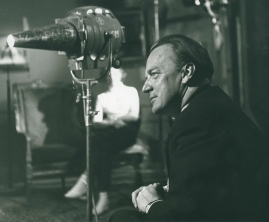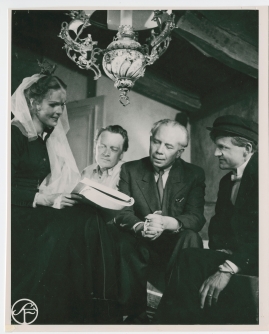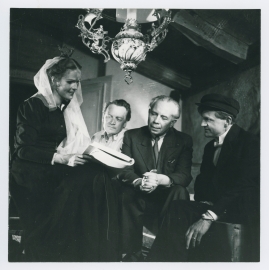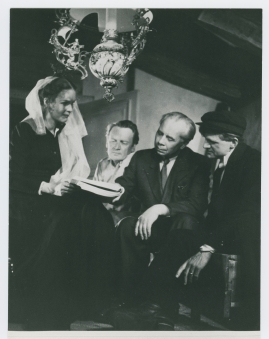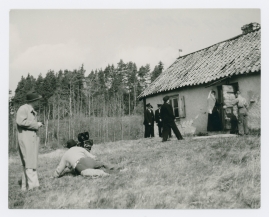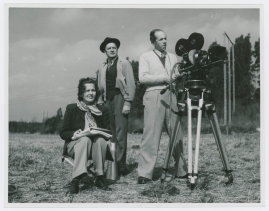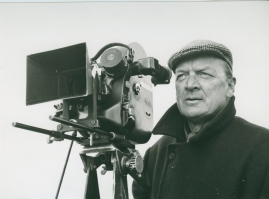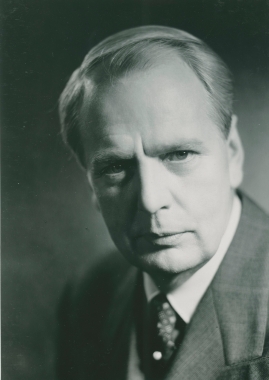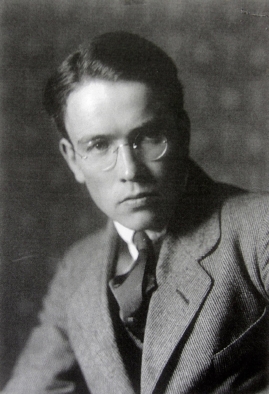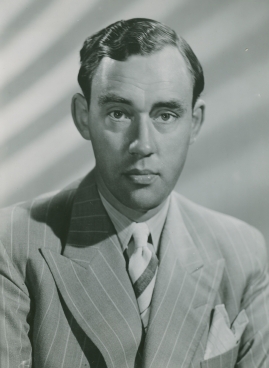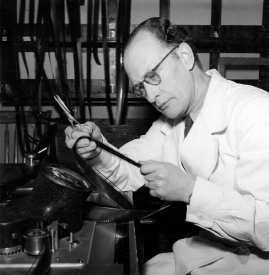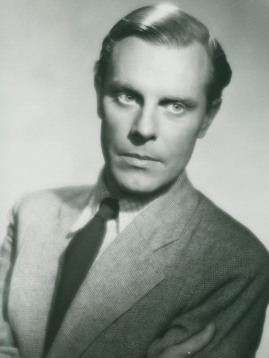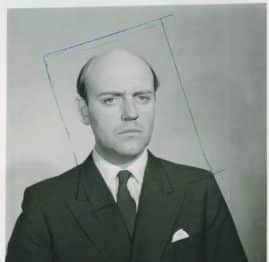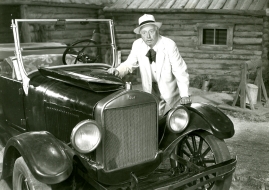Alf Sjöberg
Table of contents
- Basic facts
- Links and resources
- Biography
- Awards
- Films
- Original work
- Soundtrack listing
- Groups
Basic facts
Media (7)
| Director |
|
|---|---|
| Screenplay | |
| Show all films | |
| Awards |
|
Biography
Swedish film and theatrical director, scriptwriter and actor. Born as Sven Erik Alf Sjöberg in Stockholm. Died in Stockholm.-Alf Sjöberg was first and foremost a man of the theatre. In 1925, at the age of 22, he made his acting debut at the Royal Dramatic Theatre in Stockholm, and in 1930 he directed his first production there. He became Sweden's foremost theatre director of the 20th century, largely thanks to the 138 productions he staged during his 50 years at the Royal Dramatic Theatre. Ingmar Bergman acknowledged that Sjöberg was not only...
Biography
Swedish film and theatrical director, scriptwriter and actor. Born as Sven Erik Alf Sjöberg in Stockholm. Died in Stockholm.
-
Alf Sjöberg was first and foremost a man of the theatre. In 1925, at the age of 22, he made his acting debut at the Royal Dramatic Theatre in Stockholm, and in 1930 he directed his first production there. He became Sweden's foremost theatre director of the 20th century, largely thanks to the 138 productions he staged during his 50 years at the Royal Dramatic Theatre. Ingmar Bergman acknowledged that Sjöberg was not only his inspiration but also his superior, and that trying to compete with him was fruitless. In 1980 Sjöberg died in a cycling accident on his way to a rehearsal of Molière's "School for Wives". As a tribute to his master, Bergman made a television version of that production three years later.
Sjöberg also worked with popular theatre and radio theatre, his ambition being to reach out to as many people as possible and to use theatre to change the world. Yet despite his extensive work in the theatre, Sjöberg was also an ambitious film director, noted for his political engagement, skilful camerawork and close collaboration with his actors, whom he often borrowed from The Royal Dramatic Theatre.
Made in collaboration with Axel Lindblom, his first film was The Strongest (Den starkaste, 1929). The first film he directed solely by himself was They Staked Their Lives (Med livet som insats, 1940), a work made under the shadow of war, which although not entirely successful, shows many of the qualities mentioned above. The films that followed were met largely with critical acclaim, not least Hem från Babylon ('Home from Babylon,' 1941), which cemented Sjöberg's reputation as Sweden's leading filmmaker. Nowadays it is Torment (Hets, 1944, US title: Frenzy), which is the best remembered of his 1940s films, due in no small measure to Ingmar Bergman's screenplay. The film is both a critique of school policy and, thanks to Sjöberg's reworking of the screenplay, an analysis and critical view of Nazism. Stig Järrel's brilliant performance as the fearsome Latin teacher Caligula has also contributed to the film's reputation. (Järrel's character was in many a reprise of a similar part he played two years earlier in Hasse Ekman's Lågor i dunklet ('Flames in the Darkness').
On the stage, Sjöberg had often employed an expressionistic pictorial language which he brought along when he started to make film. Torment, with cinematography by Martin Bodin, is one of the most overtly expressionist of all Swedish films, even if one considers that this style was particularly popular in Sweden in the 1940s. One of Sjöberg's international influences was Fritz Lang, both his German and his American films. Sjöberg also had a more lyrical side, which came to the fore in films such as The Heavenly Play (Himlaspelet, 1942) and Only a Mother (Bara en mor, 1949).
Sjöberg's greatest film, Miss Julie (Fröken Julie, 1951) starring Ulf Palme and Anita Björk as Jean and Julie, combines both lyricism and expressionism. With camerawork by Göran Strindberg (a distant relative of the original play's author, August Strindberg), the film shows Sjöberg experimenting with narrative technique in a complex way. For example, he depicts two time frames concurrently in the same shot: we see an image of Julie talking of her childhood memories and those memories being played out at the same time, an unusual device but one which works well. Unique both in terms of its emotional and technical content, Sjöberg was awarded the Grand Prix du Festival International du Film (the forerunner of the Palme d'Or) at Cannes for Miss Julie. This was the second time he had won the award: in 1946 Iris and the Lieutenant (Iris och löjtnantshjärta) had shared that honour with ten other films.
Sjöberg's later films were less successful, especially after Barabbas (1953) was a major flop. In complete contrast to Miss Julie, it was almost booed out of Cannes. Yet despite making fewer films, Sjöberg remained true to his ideals. His work has been re-evaluated somewhat in recent year as various critics, including David Thomson, have asserted that Sjöberg's 1950s films, such as Karin Månsdotter (1954), are among his most interesting.
Fredrik Gustafsson (2011)
(translated by Derek Jones)
Awards
| The Guldbagge Award | Stockholm | 1966 | Best Director | (priset även kumulativt) | |
|---|---|---|---|---|---|
| Stockholm | 1966 | (för hans pionjärinsats inom filmkonsten och hans intensiva sociala engagemang) | |||
| Chaplin Magazine Award | Stockholm | 1960 | |||
| Festival Award | Punta del Este | 1952 | (uruguayska filmkritikernas hedersomnämnande av regi) | ||
| Swedish Film Society Prize | Stockholm | 1951 | (hedersdiplom) | ||
| Stockholm | 1946 | (plakett) |
Films
| Director |
|
|---|---|
| Screenplay |
|
| Story |
|
| Cast |
|
| Dialogue |
|
| Scenario |
|
